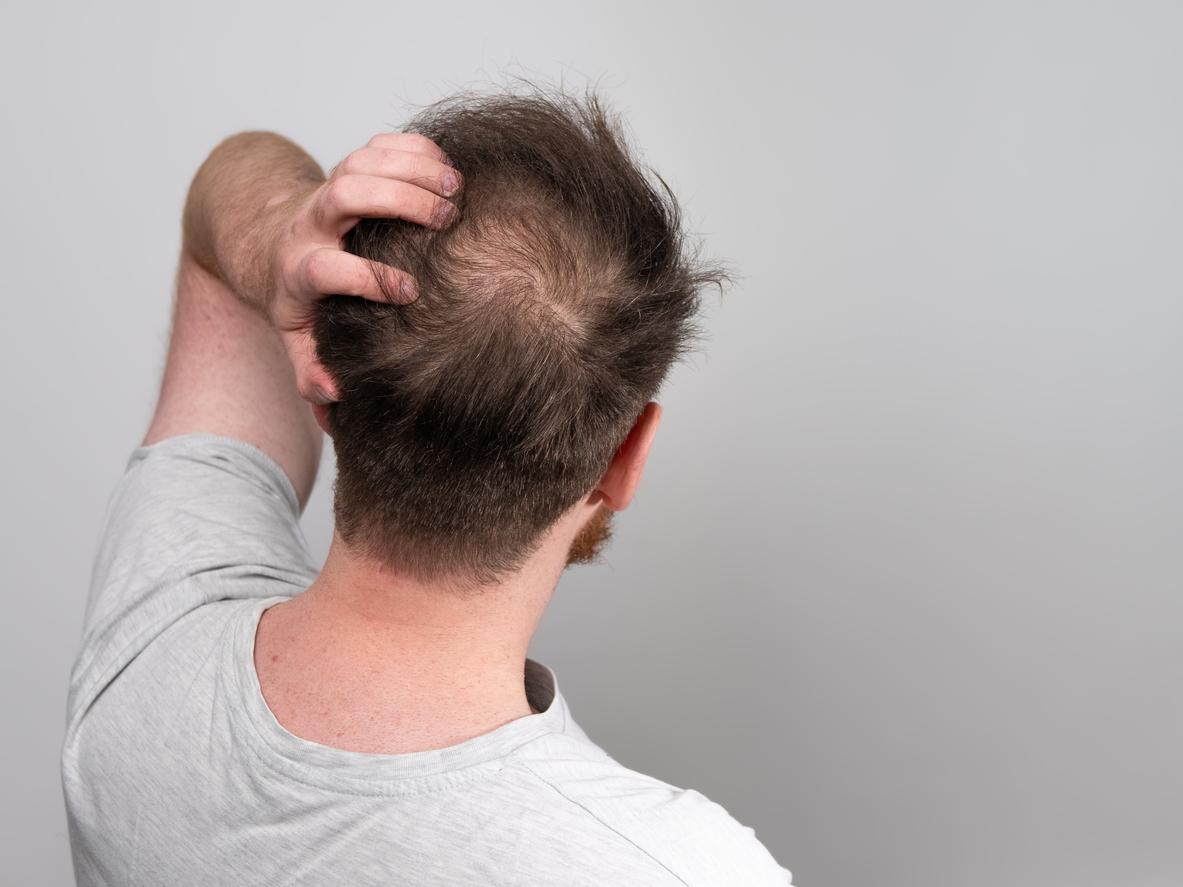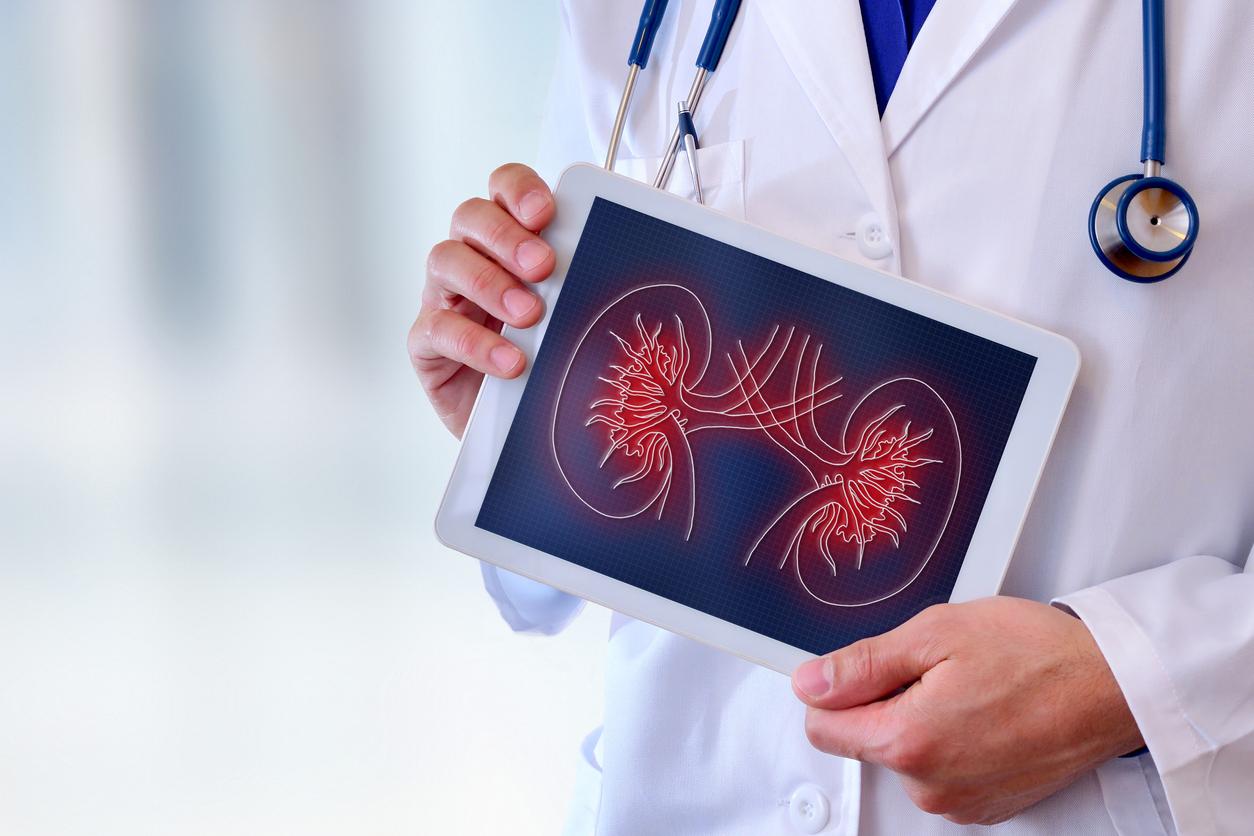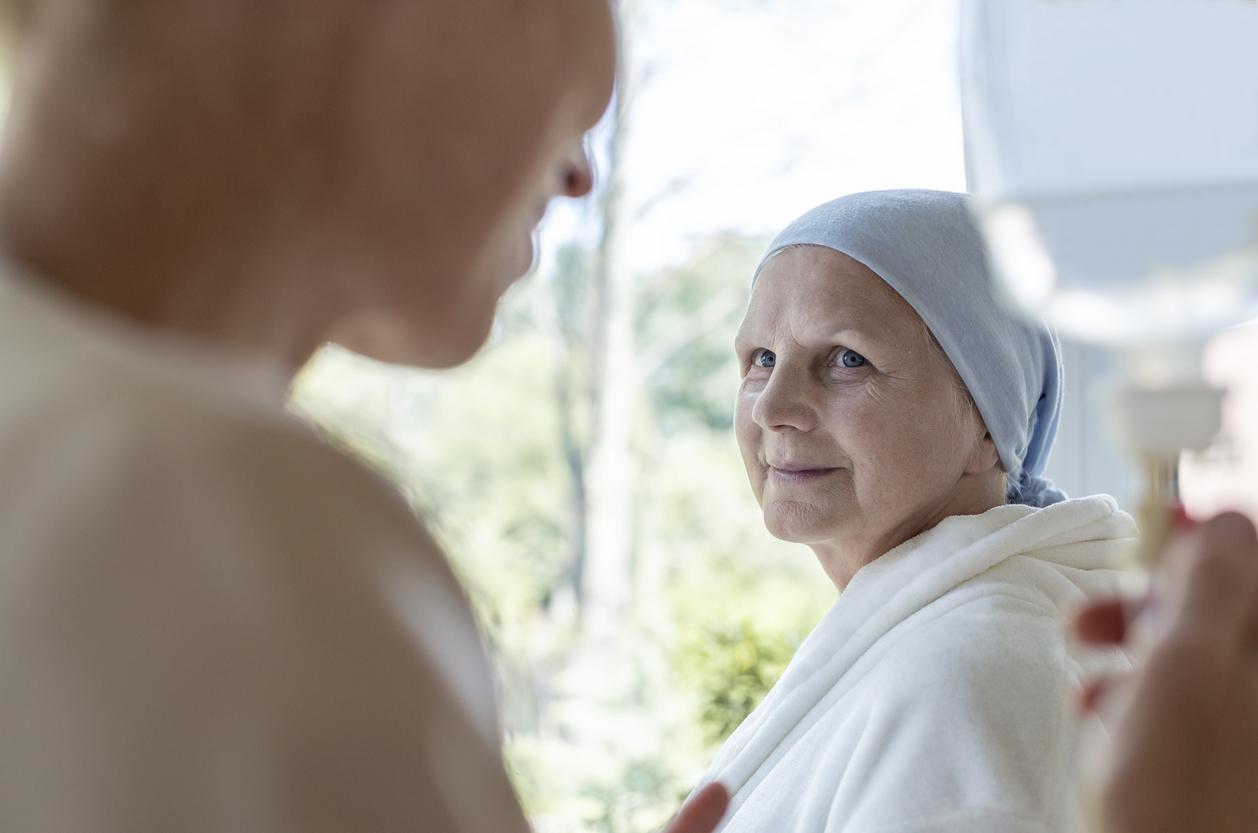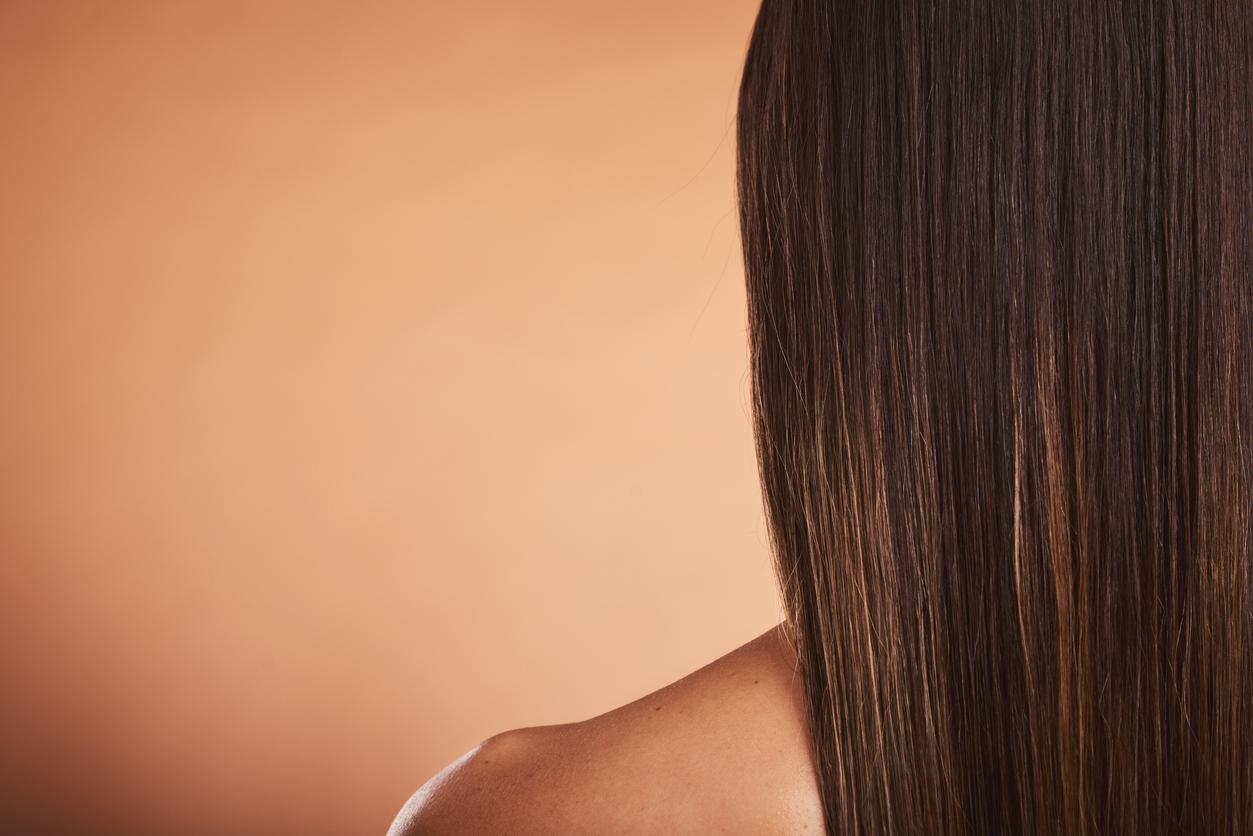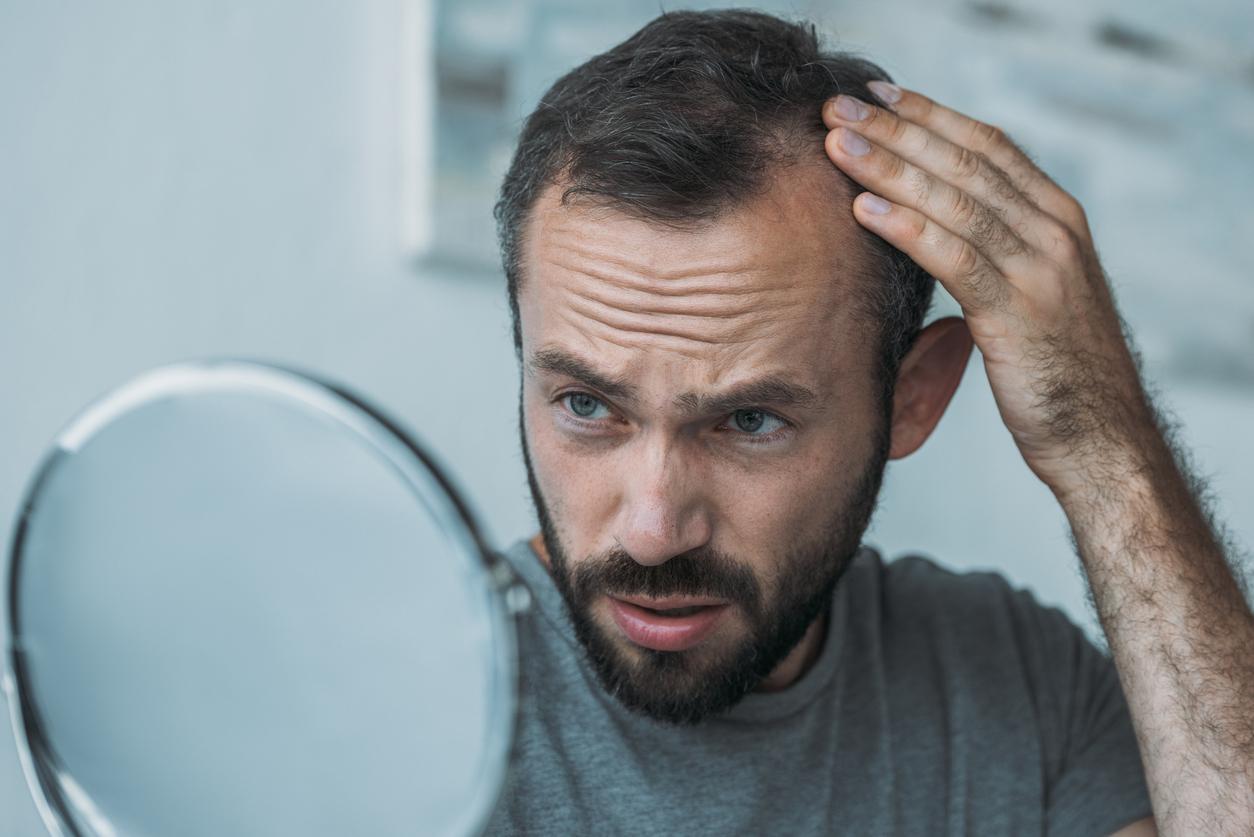Hormonal changes related to pregnancy or chemotherapy can cause changes in hair nature.

- Our hair is linked to genetics and hormones.
- Hormonal variations can cause them to fall or change their nature.
- This is the case for pregnancy, puberty or even chemotherapy.
Our hair changes throughout life. Certain events can accentuate this process. According to Theresa Larkin, a professor of medical sciences at the University of Wollongong in Australia, hormonal changes can lead to hair changes. She explains how on the English site Tea Conversation.
Why are there different types of hair?
Each strand of hair grows from a hair follicle, the roots of which are found in the skin. “Each hair follicle contains stem cells that multiply and turn into strands of hair., explains the specialist. Depending on the type of follicle, the nature of the hair varies. Thus, the asymmetrical and curved follicles form an angle on the surface of the skin, which will bend the hair and make it wavy. “Hair follicle asymmetry also causes keratin to cluster on one side of the hair strand, she continues. This brings the parts of the hair strand together into a curl, and it holds together as the hair continues to grow.” In contrast, follicles that are symmetrical, round, and perpendicular to the skin surface produce straight hair.
Pregnancy and hormones: what is their impact on hair?
“Many women notice that their hair is thicker during pregnancy”, warns Theresa Larkin. This change in texture is linked to the effects of hormones on the hair cycle. Hair goes through several phases: growth, which can last several years, the transition phase where it no longer grows and finally the resting phase where the hair remains in the follicle without falling out. “During pregnancy, high levels of estrogen, progesterone and prolactin prolong the resting phase of the hair cycle, explains the specialist. This means the hair stays in the hair follicle longer and this reduces hair loss.” After childbirth, the drop in hormone levels causes significant hair loss, as all those remaining resting in the follicle fall out.
Pregnancy, chemotherapy: effects on hair follicles
But hormonal variations also have effects on hair genetics. The author talks about the phenomenon of incomplete domination. “For hair, we have the genes for curly hair and straight hair, she elaborates. But when someone has one curly hair gene and one straight hair gene, they can have wavy hair.” With hormonal changes, certain genes can become more active, and some are linked to hair follicles: wavy hair can become curly or straight.
Aside from hormonal variations linked to puberty or pregnancy, she adds that chemotherapy can have genetic effects that influence the shape of hair follicles. Also, as we age, thyroid hormone levels may decrease, and they are important for the production of keratin, the protein that forms hair. The hair may become drier and brittle. Age-related drops in hormones also explain why some women lose hair as they age.








